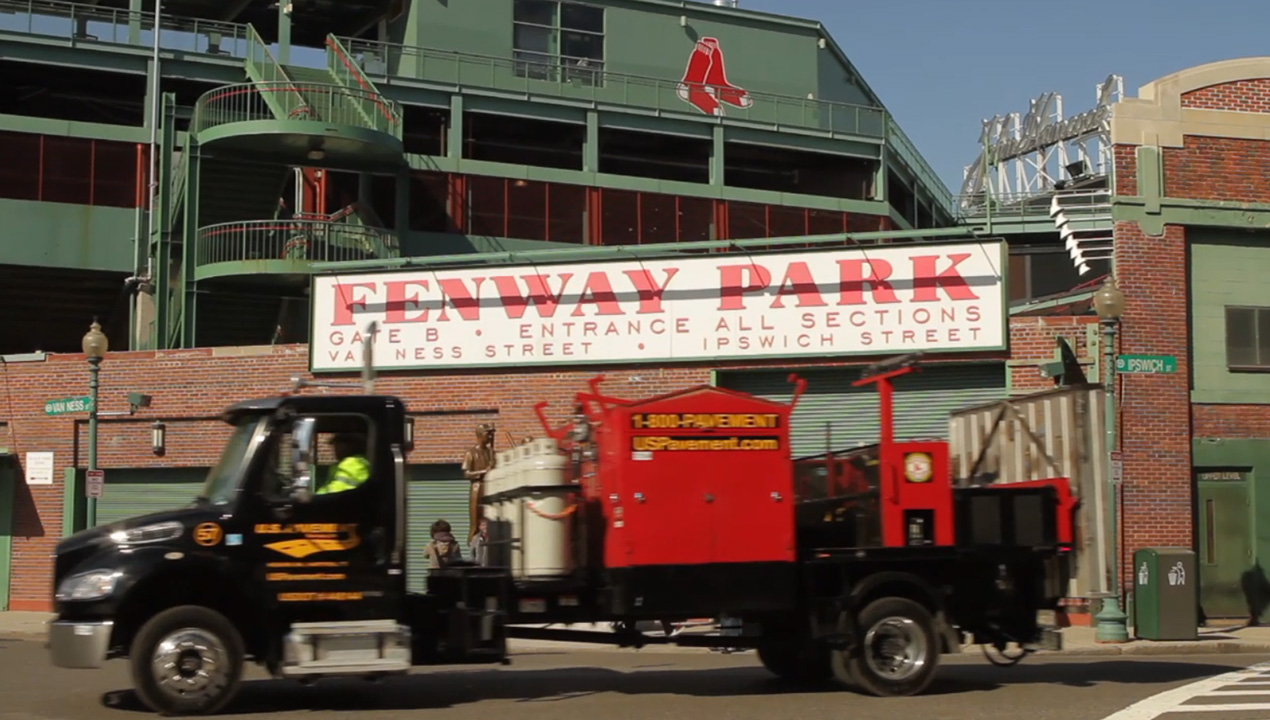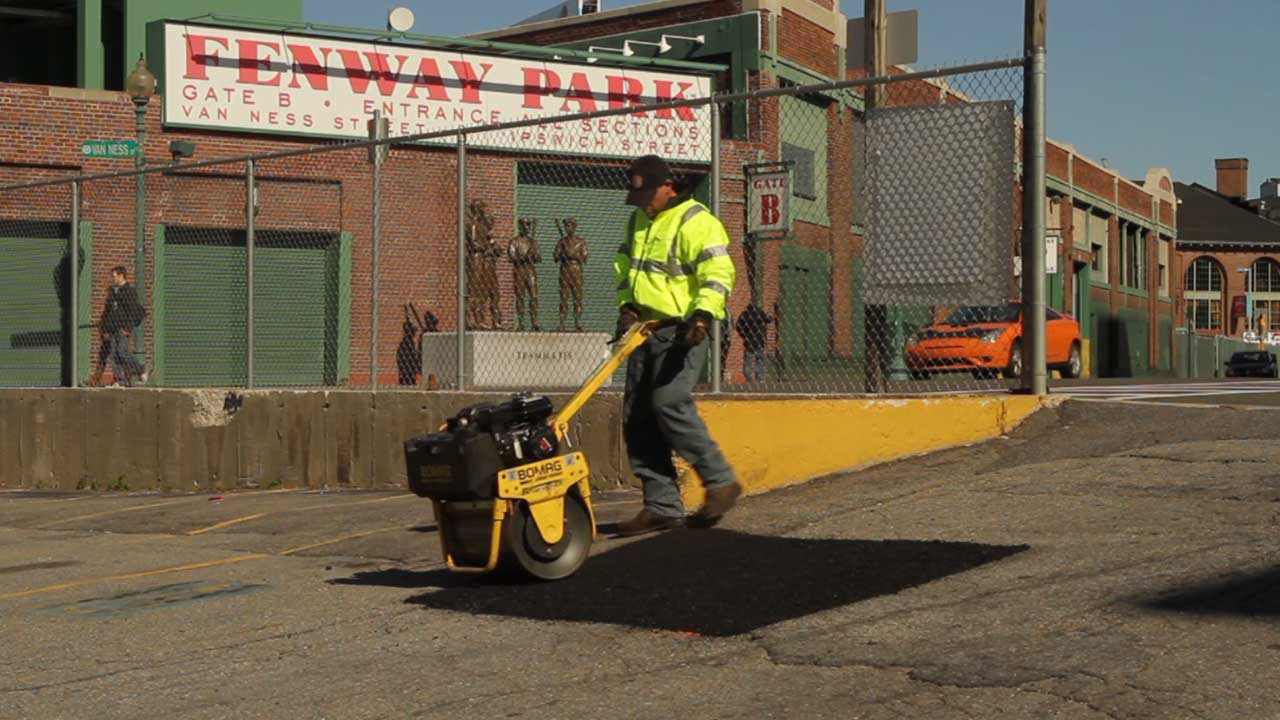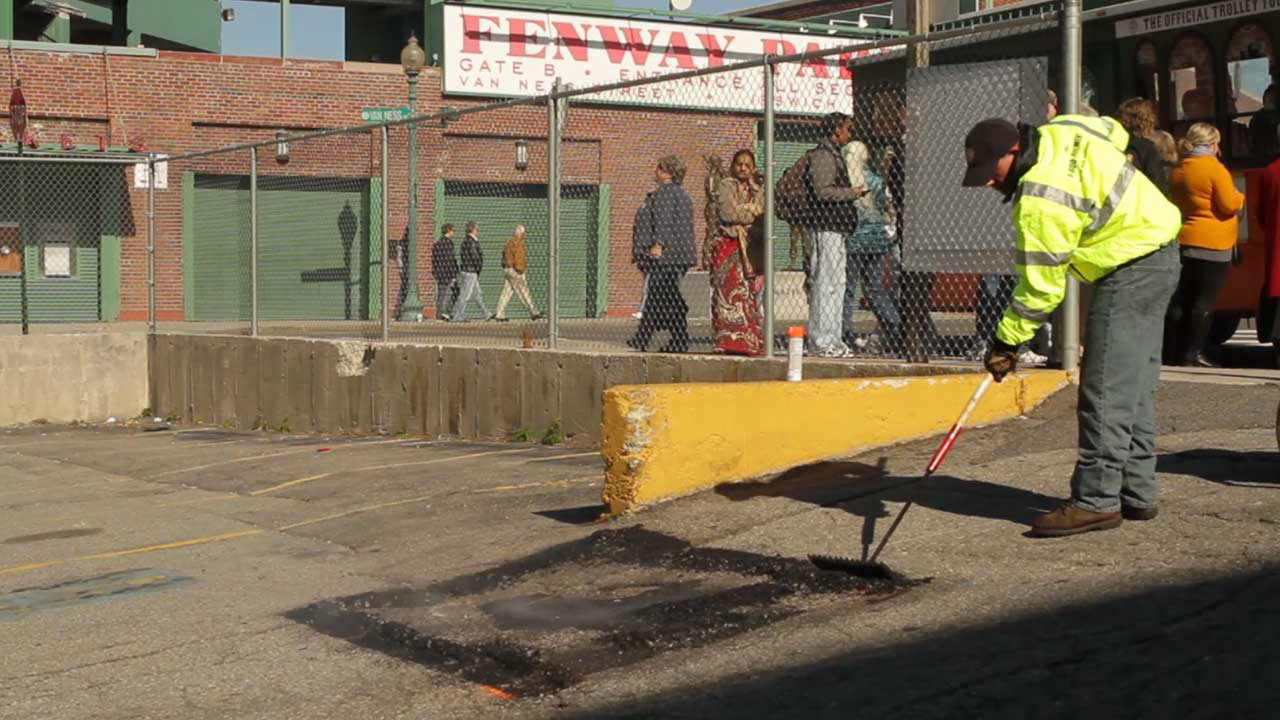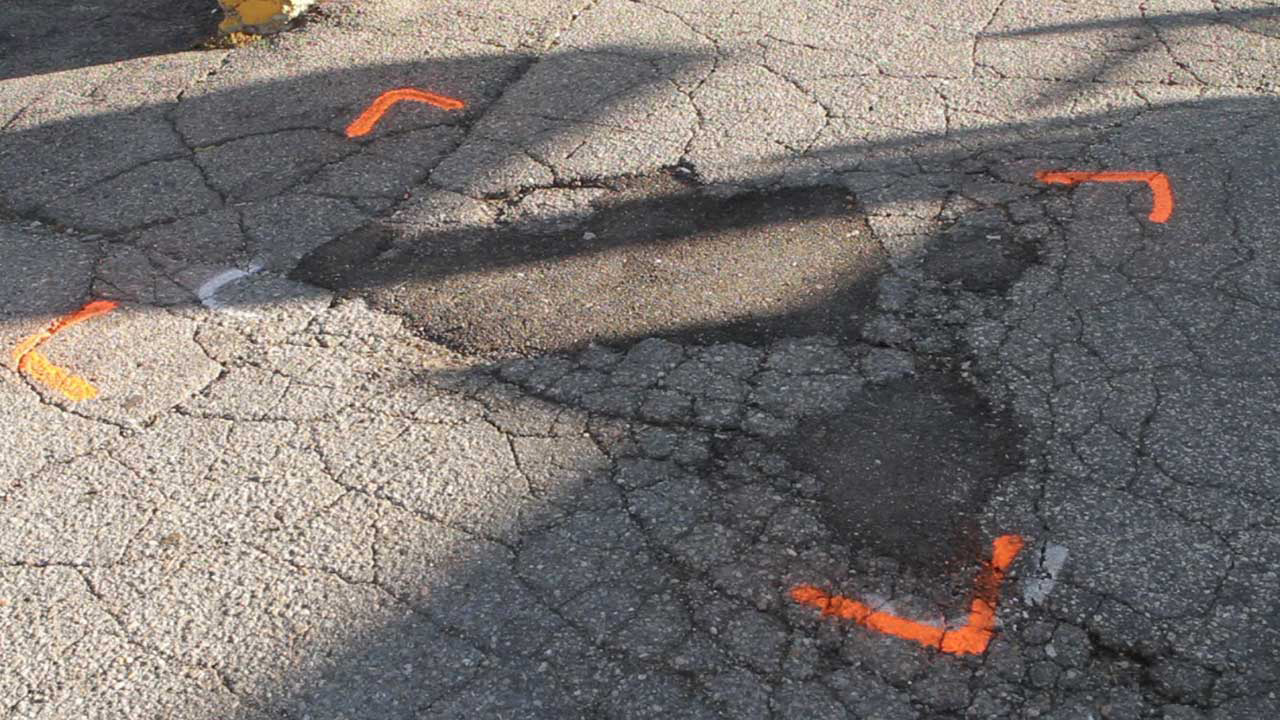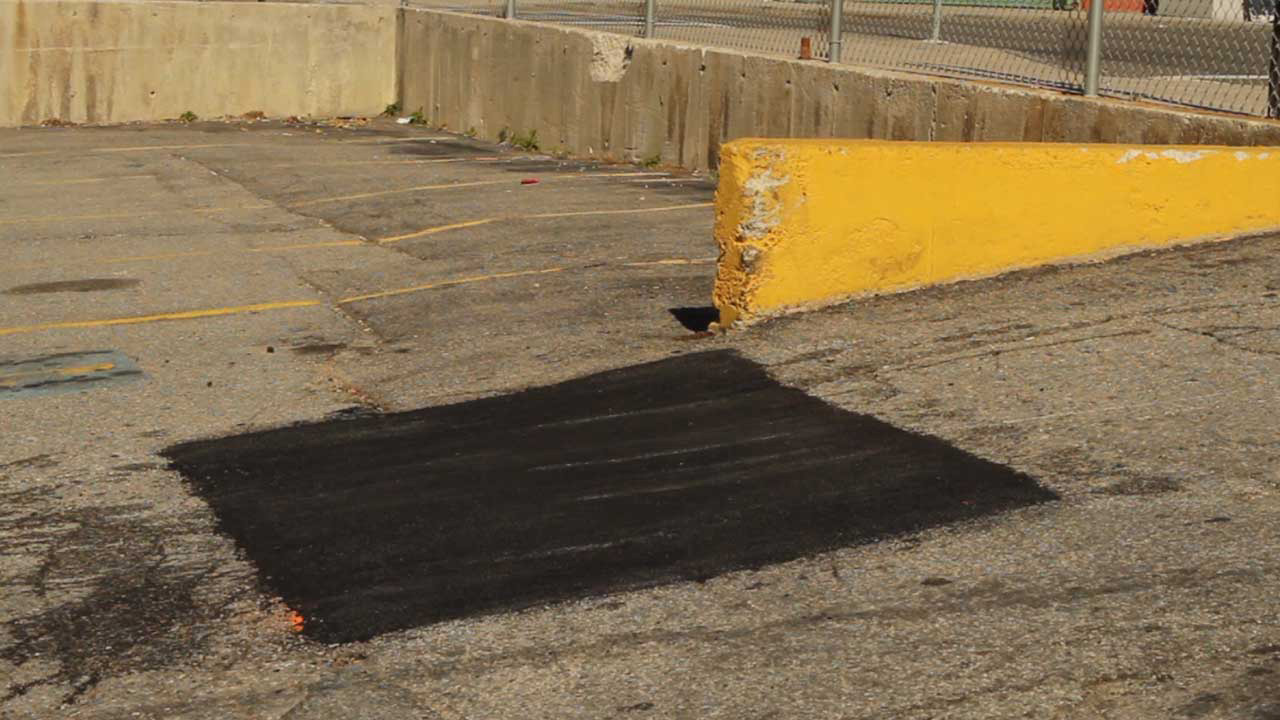The winter months can be grueling and unpredictable. Thus far in the winter of 2015, we have seen the 14, 20, and 30 day snow totals in Boston, shattered at an alarming pace. The snow accumulation records go all the way back to the late 1800's. Now that the plows and sanders are out in full force, snow removal causes inevitable damages to the surfaces of parking lots and roadways that can ultimately result in liabilities and eye sores. The best solution to this nagging problem, luckily, is effective, quick and most importantly inexpensive.
Infrared Technology offers a dynamic scope of work that involves very little cost and is thus the premier option for winter repairs and maintenance. The process involves heating the asphalt to a working temperature of 300 degrees, penetrating the asphalt to a depth of 3" to 4". After removing deteriorated asphalt and raking in new asphalt, the area is compacted with a vibratory roller. The process ties the edges of the new patch to the surrounding asphalt without seams.
With the cost of liability insurance increasing in the winter due to slippery and icy conditions, eliminating trip hazards can help avoid liabilities due to plow damage. In this case, the best defense against these costs is naturally a good offense. This option allows for a two man crew to repair up to 20 potholes in a single 8 hours with infinite options of service that can eliminate liability and trip hazards.
Not only effective and efficient, infrared is also more environmentally friendly considering it is a single unit that does not disrupt the existing sub-base of the asphalt to be repaired and is completed with fewer raw materials. Also, a single unit with only two operators is much less invasive than a crew of pavement operators disrupting drivers and pedestrians.
In addition, there will be fewer traffic interruptions as compared to traditional resurfacing as the patches can be driven on almost immediately. Avoid the headaches this winter and get ahead of the liabilities by innovating with Infrared Technology.
Robert Pappalardo is vice president business development at U.S. Pavement Services, Inc, Woburn, Mass.
 (1).png)








